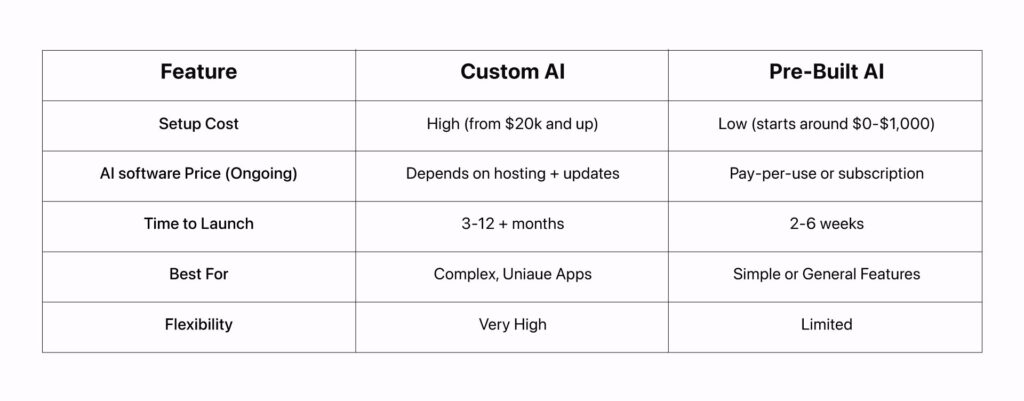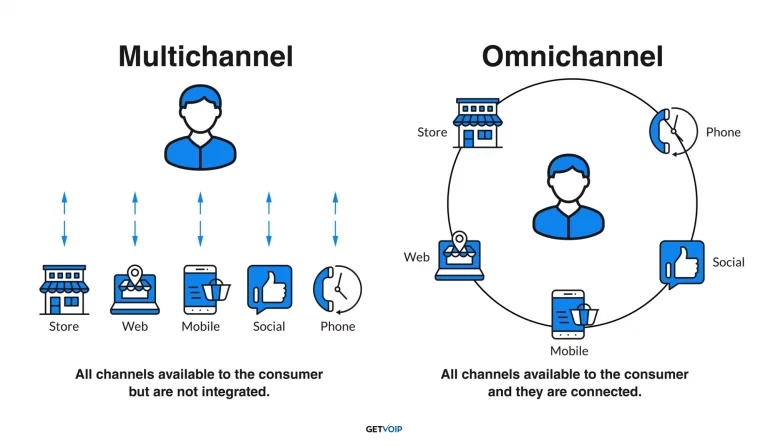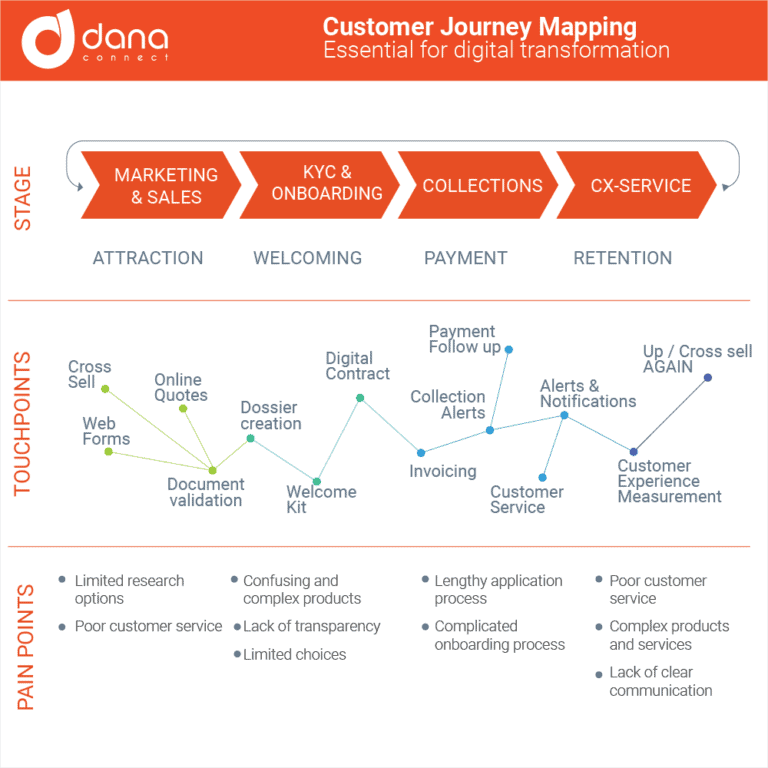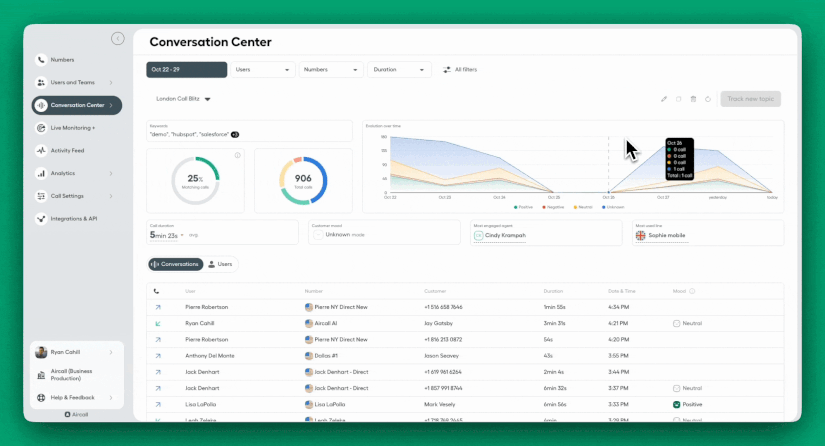AI Sales Agents: Transforming Sales Processes with Visual Intelligence
Discover how intelligent AI sales agents are revolutionizing customer engagement, automating repetitive tasks, and delivering data-driven insights to boost sales performance.
Understanding AI Sales Agents in Today's Market
Definition and Evolution of AI Sales Agents
I've watched the remarkable evolution of AI sales agents over the past few years. These aren't just simple chatbots anymore – they're intelligent software solutions that transform and automate sales tasks through advanced AI capabilities. Unlike basic automation tools that follow rigid rules, modern AI sales agents analyze customer data, learn from previous interactions, and continuously improve their performance over time.
flowchart TD
A[Basic Automation Tools] --> B[Rule-Based Systems]
B --> C[Early AI Assistants]
C --> D[Modern AI Sales Agents]
D --> D1[Data Analysis]
D --> D2[Learning Capability]
D --> D3[Autonomous Decision Making]
D --> D4[Multi-Channel Engagement]
style D fill:#FF8000,stroke:#333,stroke-width:2px
style D1 fill:#FFA500,stroke:#333,stroke-width:1px
style D2 fill:#FFA500,stroke:#333,stroke-width:1px
style D3 fill:#FFA500,stroke:#333,stroke-width:1px
style D4 fill:#FFA500,stroke:#333,stroke-width:1px
The shift from rule-based systems to intelligent, autonomous sales assistants represents a fundamental change in how we approach sales automation. Today's AI agents can understand customer intent, perform actions without human input, and adapt their approach based on the unique needs of each prospect.
The Current AI Sales Agent Landscape
When implementing an AI sales agent, businesses typically choose between prebuilt solutions or custom-built agents developed on low-code platforms. Each approach offers distinct advantages depending on your specific sales requirements, existing infrastructure, and technical capabilities.

Integration with existing CRM systems and sales tooling is crucial for AI sales agents to function effectively. Once connected, these agents can access customer data, interaction history, and product information to deliver personalized experiences.
Market adoption is accelerating rapidly, with recent studies showing that 70% of customers now expect companies to use AI for personalized interactions and offers. This shift in customer expectations is driving businesses across industries to incorporate AI sales agents into their sales processes.
Key Functions and Capabilities of AI Sales Agents
Lead Management and Qualification
One of the most valuable capabilities of AI sales agents is their ability to automate prospect identification and prioritization. By analyzing behavioral data and interaction patterns, these agents can identify which leads are most likely to convert, allowing sales teams to focus their efforts where they'll have the greatest impact.
flowchart TD
A[Lead Enters System] --> B{AI Agent Analyzes}
B -->|High Engagement| C[Hot Lead]
B -->|Moderate Engagement| D[Warm Lead]
B -->|Low Engagement| E[Cold Lead]
C --> F[Immediate Sales Rep Contact]
D --> G[Automated Nurturing Sequence]
E --> H[Periodic Re-evaluation]
style B fill:#FF8000,stroke:#333,stroke-width:2px
style C fill:#FF4500,stroke:#333,stroke-width:1px
style D fill:#FFA500,stroke:#333,stroke-width:1px
style E fill:#ADD8E6,stroke:#333,stroke-width:1px
For example, an AI sales agent might notice that leads who used a product trial more than three times a week and visited the pricing page are significantly more likely to subscribe to a paid plan. The agent can automatically flag these leads for priority follow-up, dramatically improving conversion rates.
With AI agents becoming more accessible, visualizing these lead qualification workflows is now easier than ever. PageOn.ai's AI Blocks allow sales teams to create clear visual representations of their qualification criteria and decision pathways.
Customer Engagement and Communication
Modern AI sales agents excel at providing 24/7 multi-channel engagement across email, chat, SMS, and calls. This consistent availability ensures that prospects receive immediate attention regardless of when they engage with your business.

What truly sets advanced AI sales agents apart is their emotional intelligence and personalization capabilities. These agents analyze customer data to create genuinely personalized messages and adapt their communication style based on the prospect's preferences and behavior.
Creating engaging conversation flows is critical for effective AI sales agents. PageOn.ai's Vibe Creation tools help sales teams design natural, compelling conversation paths that guide prospects through the sales journey while maintaining a consistent brand voice.
Data Analysis and Sales Intelligence
AI sales agents excel at analyzing vast amounts of sales data to identify trends, forecast outcomes, and recommend optimal next actions. This data-driven approach removes guesswork from the sales process and enables more strategic decision-making.
Next-best-action and offer recommendations are particularly valuable capabilities of AI sales agents. By analyzing historical data and current customer behavior, these agents can suggest the most effective next steps to move a prospect through the sales funnel.
Transforming complex sales data into clear visual insights is where PageOn.ai truly shines. Its visualization tools allow sales teams to quickly understand trends, patterns, and opportunities that might otherwise remain hidden in raw data.
Business Benefits of Implementing AI Sales Agents
Operational Efficiency and Time Management
I've found that one of the most immediate benefits of AI sales agents is the dramatic reduction in non-selling activities. According to industry research, sales representatives typically spend only 28% of their time actually selling, with the remainder consumed by administrative tasks, data entry, and meeting preparation.
By automating repetitive tasks like data entry, meeting scheduling, and follow-ups, AI sales agents free up human representatives to focus on high-value activities that require emotional intelligence and complex problem-solving.
Visualizing these productivity gains is essential for understanding the true ROI of AI sales agents. With PageOn.ai's data visualization capabilities, sales leaders can clearly demonstrate how agent implementation impacts key metrics like time-to-response, meetings booked, and deals closed.
Enhanced Customer Experience
AI sales agents dramatically improve the customer experience by delivering consistent, accurate information across all touchpoints. This consistency builds trust and confidence in your brand, especially when prospects interact with your company through multiple channels.

Immediate responses are another key benefit of AI sales agents. In today's fast-paced business environment, prospects expect quick answers to their questions. AI agents can provide instant responses 24/7, significantly reducing wait times and improving customer satisfaction.
Creating personalized customer journey maps is essential for understanding how AI agents impact the overall experience. PageOn.ai's AI Blocks make it easy to visualize these journeys and identify opportunities for further personalization and optimization.
Scalability and Revenue Impact
One of the most compelling benefits of AI sales agents is their ability to handle increased lead volume without requiring proportional headcount growth. This scalability allows businesses to expand their market reach without the traditional constraints of sales team capacity.
flowchart LR
A[Lead Generation] --> B[AI Lead Qualification]
B --> C{Lead Quality}
C -->|High Value| D[Human Sales Rep]
C -->|Nurturing Needed| E[AI Nurturing Sequence]
E --> F[Regular Reassessment]
F -->|Ready to Buy| D
style B fill:#FF8000,stroke:#333,stroke-width:2px
style E fill:#FF8000,stroke:#333,stroke-width:2px
style D fill:#66BB6A,stroke:#333,stroke-width:1px
Improved conversion rates are another significant benefit, achieved through consistent follow-up and engagement. AI sales agents never forget to follow up, get distracted, or prioritize one lead over another based on personal preference – they methodically execute the optimal engagement strategy for each prospect.
Visualizing sales pipeline growth becomes much easier with AI agents integrated with analytics tools. PageOn.ai's Deep Search integration allows sales leaders to explore their pipeline data visually, identifying bottlenecks and opportunities for optimization.
Implementation Strategies for AI Sales Agents
Selecting the Right AI Sales Agent Solution
Choosing the right AI sales agent solution requires careful consideration of your specific sales processes, technical requirements, and business goals. Different types of agents excel at different aspects of the sales process – from lead generation and qualification to customer engagement and deal closing.
Matching agent capabilities to your specific sales process requirements is essential for successful implementation. Consider factors such as your target market, sales cycle length, product complexity, and existing team structure when evaluating different solutions.
Creating visual decision frameworks with PageOn.ai can help guide your selection process. By mapping your requirements against available solutions, you can more easily identify the best fit for your organization's needs.
Integration with Existing Sales Infrastructure
Successful AI sales agent implementation requires seamless integration with your existing CRM and communication channels. This integration ensures that your AI agents have access to all relevant customer data and can update records automatically based on their interactions.
flowchart TD
A[CRM System] <--> B[AI Sales Agent]
B <--> C[Email Platform]
B <--> D[Chat System]
B <--> E[Phone System]
B <--> F[Calendar]
B <--> G[Marketing Automation]
style B fill:#FF8000,stroke:#333,stroke-width:2px
Data preparation is a critical step in the integration process. AI sales agents perform best when they have access to clean, structured data about your customers, products, and sales processes. Investing time in data preparation will significantly improve your agent's performance from day one.
Mapping integration workflows visually with PageOn.ai's structured content blocks helps ensure that all team members understand how data flows between systems and where the AI agent fits into the overall process.
Training and Optimization Process
Providing comprehensive sales playbooks and product information is essential for training your AI sales agents. The more knowledge you give your agents about your products, target customers, and successful sales strategies, the more effectively they'll be able to engage with prospects.

Testing protocols and performance measurement are crucial for ongoing optimization. Establish clear metrics for success – such as response accuracy, conversion rates, and customer satisfaction – and regularly evaluate your AI agent's performance against these benchmarks.
Creating visual training materials and process documentation with PageOn.ai helps ensure that everyone on your team understands how to work with and optimize your AI sales agents. Clear documentation is particularly important when implementing new technology that changes established workflows.
Balancing Human and AI Collaboration in Sales
Defining the Optimal Human-AI Division of Labor
I've found that the most successful AI sales implementations carefully define which tasks are best suited for AI automation versus human expertise. Generally, AI excels at repetitive, data-intensive tasks, while humans bring unique value through emotional intelligence, complex problem-solving, and relationship building.
Handoff protocols between AI agents and human sales representatives are critical for a seamless customer experience. Clear criteria should be established for when an AI agent should transfer a conversation to a human, such as complex questions, significant buying signals, or customer frustration.
Visualizing collaborative workflows with PageOn.ai's AI Blocks helps teams understand exactly how humans and AI agents will work together at each stage of the sales process. This clarity reduces confusion and ensures that prospects receive the appropriate level of attention.
Empowering Sales Teams with AI Support
AI sales agents can serve as powerful coaching tools, analyzing call recordings, email exchanges, and chat conversations to identify areas for improvement. This data-driven coaching helps sales representatives continuously refine their skills and approach.

By handling routine tasks, AI agents free human sales representatives to focus on what they do best – building relationships and navigating complex negotiations. This shift allows sales professionals to spend more time on high-value activities that directly impact revenue.
Creating visual sales playbooks with PageOn.ai that incorporate ai marketing and AI agent support helps sales teams understand exactly how to leverage these tools in their daily work. These playbooks can include decision trees, conversation flows, and best practices for human-AI collaboration.
Measuring Success in Human-AI Sales Environments
Developing key performance indicators (KPIs) for hybrid sales teams requires a holistic approach that considers both AI and human contributions. Metrics might include overall conversion rates, time-to-response, customer satisfaction scores, and revenue per sales representative.
Continuous improvement methodologies are essential for optimizing human-AI collaboration over time. Regular reviews of AI agent performance, human feedback, and customer outcomes help identify opportunities for refinement and enhancement.
Visualizing performance metrics and trends with PageOn.ai's Deep Search helps sales leaders identify patterns and correlations that might otherwise remain hidden. These insights drive strategic decisions about how to further optimize the division of labor between humans and AI agents.
Future Directions in AI Sales Agent Technology
Emerging Capabilities and Innovations
Advanced natural language processing is rapidly evolving, enabling AI sales agents to engage in more natural, nuanced conversations with prospects. These improvements will make it increasingly difficult for customers to distinguish between AI and human interactions, further enhancing the effectiveness of AI sales agents.
flowchart TD
A[Current AI Sales Agents] --> B[Advanced NLP]
A --> C[Predictive Analytics]
A --> D[Multimodal Capabilities]
B --> E[Next-Gen AI Sales Agents]
C --> E
D --> E
E --> F[Autonomous Deal Closing]
E --> G[Emotional Intelligence]
E --> H[Strategic Account Planning]
style A fill:#ADD8E6,stroke:#333,stroke-width:1px
style E fill:#FF8000,stroke:#333,stroke-width:2px
style F fill:#FFA500,stroke:#333,stroke-width:1px
style G fill:#FFA500,stroke:#333,stroke-width:1px
style H fill:#FFA500,stroke:#333,stroke-width:1px
Predictive analytics for anticipating customer needs represents another frontier in AI sales agent development. By analyzing patterns across large datasets, these agents will increasingly be able to predict what a customer might need before the customer even realizes it themselves.
Visualizing the evolution of AI sales technology with PageOn.ai's structured content blocks helps organizations prepare for upcoming innovations and understand how these advancements might impact their sales processes.
Addressing Challenges and Limitations
Data privacy and security considerations remain paramount as AI sales agents gain access to increasingly sensitive customer information. Organizations must implement robust security measures and ensure compliance with relevant regulations like GDPR and CCPA.

Managing customer expectations around AI interactions is another important consideration. While some customers may prefer the efficiency of AI interactions, others might feel uncomfortable if they're not aware they're speaking with an AI. Clear disclosure policies and seamless human handoff options can help address these concerns.
Creating transparent AI governance frameworks with PageOn.ai's visual documentation tools helps organizations establish clear guidelines for AI usage, data handling, and customer communication. These frameworks build trust with both internal stakeholders and customers.
Preparing for the Next Generation of AI Sales Agents
Skills development for sales professionals in an AI-augmented environment is essential for future success. Tomorrow's top performers will need to excel at collaborating with AI tools, interpreting AI-generated insights, and focusing on the uniquely human aspects of relationship building.
Strategic planning for increased AI integration involves mapping out how your sales processes will evolve as AI capabilities advance. Organizations should develop roadmaps that outline how they'll gradually expand AI responsibilities while ensuring that human sales representatives continue to add unique value.
Visualizing future sales processes with PageOn.ai's forward-thinking content structures helps organizations prepare for the next wave of AI innovation. By creating visual models of potential future states, sales leaders can better understand the implications of different AI adoption strategies and make more informed decisions.
Transform Your Sales Processes with PageOn.ai
Ready to visualize your AI sales agent strategies and create compelling visual documentation? PageOn.ai provides the tools you need to design, document, and optimize your sales processes with stunning visuals and intuitive interfaces.
Start Creating with PageOn.ai TodayConclusion: The Future of AI-Powered Sales
As we've explored throughout this guide, AI sales agents are fundamentally transforming how sales teams operate, engage with customers, and drive revenue growth. From automating repetitive tasks to delivering personalized experiences and providing data-driven insights, these intelligent assistants are becoming essential tools for modern sales organizations.
The most successful implementations will be those that thoughtfully balance AI automation with human expertise, creating collaborative environments where each contributes their unique strengths. As AI marketing assistants and sales agents continue to evolve, organizations that embrace these technologies while investing in their human talent will gain significant competitive advantages.
Visualizing these complex sales processes, integration points, and collaborative workflows is where PageOn.ai truly shines. By providing intuitive tools for creating clear, compelling visual representations of your sales strategies, PageOn.ai helps ensure that everyone in your organization understands how to leverage AI sales agents effectively.
As you embark on your AI sales agent journey, remember that successful implementation requires careful planning, ongoing optimization, and a commitment to both technological innovation and human development. With the right approach, AI sales agents can dramatically enhance your team's capabilities, improve customer experiences, and drive sustainable revenue growth.
The future of sales is a harmonious blend of human expertise and AI capabilities – and that future is already here. Organizations that recognize this shift and adapt accordingly will be well-positioned for success in the increasingly competitive and technology-driven sales landscape.
You Might Also Like
Mastering Visual Flow: How Morph Transitions Transform Presentations | PageOn.ai
Discover how Morph transitions create dynamic, seamless visual connections between slides, enhancing audience engagement and transforming ordinary presentations into memorable experiences.
Building New Slides from Prompts in Seconds | AI-Powered Presentation Creation
Discover how to create professional presentations instantly using AI prompts. Learn techniques for crafting perfect prompts that generate stunning slides without design skills.
Revolutionizing Slide Deck Creation: How AI Tools Transform Presentation Workflows
Discover how AI-driven tools are transforming slide deck creation, saving time, enhancing visual communication, and streamlining collaborative workflows for more impactful presentations.
Transform Your Presentations: Mastering Slide Enhancements for Maximum Impact
Learn how to elevate your presentations with effective slide enhancements, formatting techniques, and visual communication strategies that captivate audiences and deliver powerful messages.